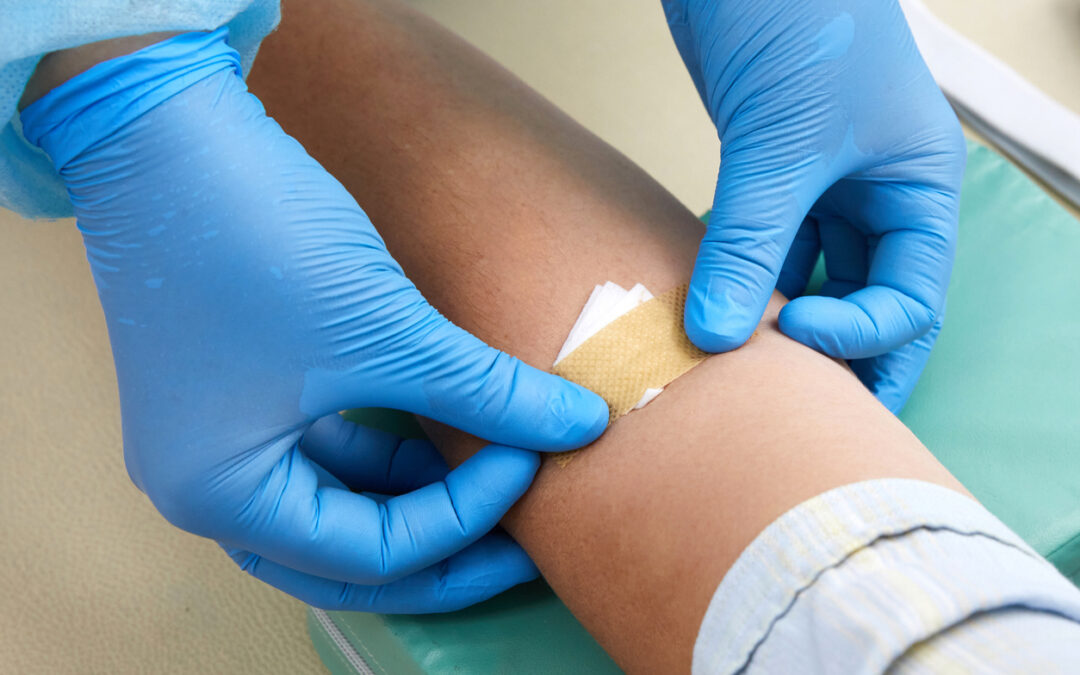Blood tests are very common and can be carried out for a number of reasons: to check that your major organs are working properly, to help diagnose disease, to find out if a medication you’re taking is working, to check that your immune system is functioning properly, to check that your blood count levels are within the medical standards, to get an accurate picture of your current health status, and many other various reasons.
Getting ready for a blood test shouldn’t be stressful, but there are some things you can do to ensure your blood sample provides the most accurate look at your current health possible.
Blood Test Preparation Tips
There are some things you should keep in mind before your blood test. These tips should help your results be as precise as possible, and help you feel more confident and comfortable during the process.
Fasting
The amount of time you’ll need to fast will be dependent on the type of blood test you’re having done. Most blood tests require you to not eat or drink anything but water for 8 hours prior to the test. For a few tests, a 12-hour fasting period is necessary.
There is a lot of logic behind the requirement of fasting before a blood test. Here are a few reasons why fasting before a blood test is important:
- Accurate Results–Measuring the components of your blood without interference from recent food and drink makes your results more reliable. For example, cholesterol levels can be influenced by recent meals or beverages. It is important to get a baseline level of many of the elements in your blood, and fasting will provide these baseline results.
- Glucose Levels–Glucose is the level of sugar in your blood. If you’ve recently eaten or have had more than water to drink, your glucose levels will be influenced. It’s important to see how your body processes glucose without the influence of food or drink.
- Consistency and Comparison–By fasting before a blood test, you are ensuring a consistent baseline from which to read your results over time. This makes it easier to monitor your health and compare the elements in your blood over time.
Fasting is probably the most important tip for accurate blood test results. By taking out the influence of food and beverages, the components in your blood and how they function can shine and tell the story of your current wellness.
Medications
Some medications can affect the results of your blood test, but it doesn’t mean you should stop taking them. Speak with your doctor before stopping any prescribed medications, and make sure to tell the person drawing your blood which medications you are taking. Some vitamins and supplements can even affect the results of a blood test, so be sure to make note of those, as well.
Hydration
Staying hydrated is important in everyday life, but it is especially important before a blood test. Drinking more water than you normally do in the two days leading up to your blood test may be a good idea. If you are hydrated, your veins are easier to find, and the blood test is more easily carried out. If you are dehydrated, it can be difficult to find and puncture the vein for a sample.
Alcohol & Smoking
Although drinking alcohol and smoking are detrimental to your overall health, they also greatly inhibit accurate blood test results. If you’re fasting for 12 hours before a blood test, alcohol included, your body will likely metabolize the alcohol prior to the test as long as you’ve had one or two drinks. However, when in doubt, leave it out.
If you’ve been asked to fast prior to your blood test, you should refrain from smoking as well. Smoking can increase the white blood cell levels in your blood, so it is better to avoid doing it prior to your blood test.
Exercise
This might be the only time you’ll be told to hold off on exercising. Working out before a blood test may affect certain results, such as inflammatory markers and blood sugar levels. For the most accurate results, avoid high-intensity exercise for a couple of days before your blood test.
—
Preparing for a blood test does not have to be a stressful experience. Following the directions given to you by your healthcare professional, as well as adhering to the tips mentioned above, should ensure a comfortable experience that concludes with trusted, and accurate, blood test results.
Questions about how to best prepare for a blood test, or how blood tests can help you on your wellness journey? Contact 10X Health today!








